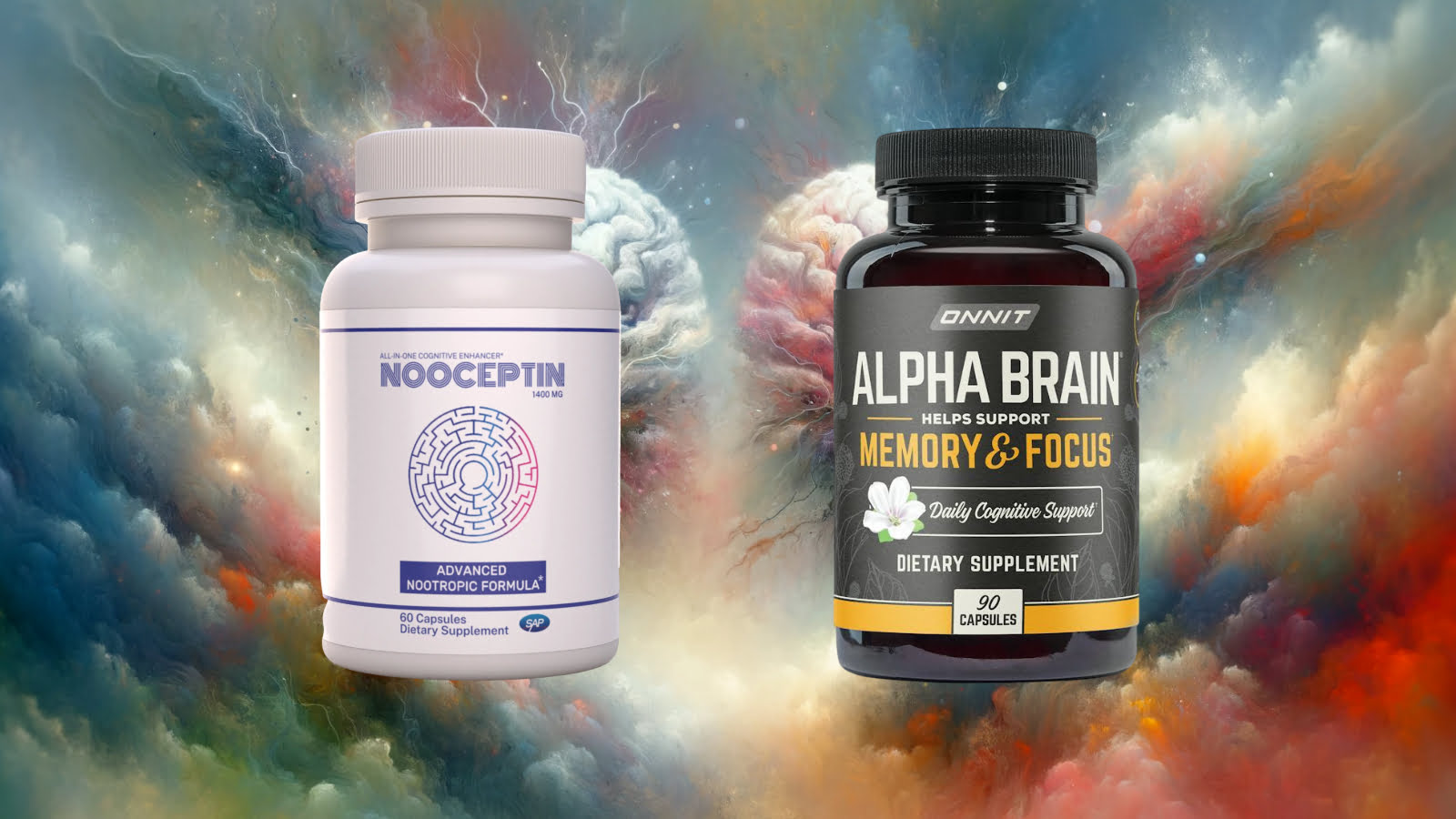
In an era where cognitive clarity and optimal mental performance are more sought after than ever, the conversation often turns to the world of nootropic supplements.
Within this realm, two names frequently emerge at the forefront: Nooceptin vs Alpha Brain. We believe Nooceptin to be the better choice, due to its transparent and powerful scientifically-backed formula with potent effects for most users.
These supplements promise enhanced focus, reduced brain fog, and improved mental stamina, but how do they really stack up against each other?
This article aims to provide an in-depth comparison, backed by an understanding of brain chemistry, to help you make an informed decision on which nootropic is the best support for your cognitive goals.
Table of Contents
What Are the Key Features of Nooceptin and Alpha Brain?
Nooceptin and Alpha Brain are both popular nootropics that aim to enhance cognitive functions like learning abilities, mental clarity, and stamina. What sets them apart is that Nooceptin uses one potent formula, and Alpha Brain provides customized cognitive support.
What Is Nooceptin and What Are Its Ingredients?
Nooceptin stands out as a complete cognitive enhancer, designed to support various aspects of brain function.
It’s crafted with several key ingredients, each selected for its proven effects on mental performance:
- Lions Mane (Hericium Erinaceus) — 400 mg
- Citicoline — 200 mg
- L-Theanine — 400 mg
- Panax Ginseng — 200 mg
- Rhodiola Rosea — 150 mg
- Bacopa Monnieri — 150 mg
- Ginkgo Biloba — 100 mg
Understanding these components can help you appreciate how Nooceptin works.
Firstly, Citicoline is a cornerstone ingredient in Nooceptin. It plays a crucial role in the synthesis of phosphatidylcholine, an essential component of your brain cells’ membranes. This action supports brain health and cognitive function by enhancing communication between neurons.(1)
Another vital ingredient is Rhodiola Rosea. This adaptogen is known for its ability to support long-term potentiation in the hippocampus.(2) Essentially, it helps improve learning and memory processes by influencing how information becomes more permanently stored in your brain.
Bacopa Monnieri also contributes significantly to the formula. Research has shown that this ancient herb enhances memory and cognitive processing capabilities by promoting neuron communication.(3) It does so through increased dendritic length and branching.
Moreover, added to the blend is L-Theanine, which promotes alpha brain waves (8 to 12 Hz) and neurotransmitter activity associated with calm focus without inducing drowsiness or lethargy. Research from Anna Nobre suggests that this component ensures your mind remains sharp and focused, it also stays relaxed—a balance crucial for peak intellectual performance.(4)
The addition of other natural nootropics such as Lions Mane, Panax Ginseng, and Ginkgo Biloba ensures that this powerful formula promotes overall brain health.(5)(6)(7)
What Is Alpha Brain and What Are Its Ingredients?
Alpha Brain is a dietary supplement from Onnit that aims to enhance cognitive functions using proprietary blends of natural ingredients. Unlike Nooceptin, Alpha Brain utilizes these proprietary blends:
- The Onnit Flow Blend (L-Tyrosine, L-Theanine, Oat (straw) extract, and Posphatidylserine) — 600 mg
- The Onnit Focus Blend (Alpha GPC, Bacopa extract, and Toothed Clubmoss extract) — 240 mg
- The Onnit Fuel Blend (L-Leucine and Pterostilbene) — 60 mg
The main stand-alone components of Alpha Brain’s premium blend include amino acids, vitamin B6 (10 mg), and Cat’s Claw extract (350 mg).
These ingredients are chosen for their potential to support memory, focus, and mental clarity. For example, amino acids play a crucial role in neurotransmitter synthesis.(8)
However, without knowing the exact amounts of each component due to the use of proprietary blends, it’s challenging to directly understand Alpha Brain’s efficacy.
How Do the Ingredients in Nooceptin and Alpha Brain Compare?
Alpha Brain’s components target neurotransmitter production for improved focus and mental clarity. However, the lack of transparency regarding individual doses within Alpha Brain’s proprietary blend leaves us skeptical.
Nooceptin takes a different path with its formulation. It emphasizes transparency, with a complex natural formula of vitamins, minerals, and specific nootropic compounds like Citicoline and Lion’s Mane. Nooceptin’s ingredients support brain health at a cellular level and also improve memory retention.
How Do Nooceptin and Alpha Brain Work for Cognitive Enhancement?
Nooceptin and Alpha Brain both work by influencing the brain’s neurotransmitters. These are chemicals that transmit signals in the brain.
But, what does each popular nootropic supplement offer you?
What Are the Cognitive Benefits of Using Nooceptin?
Nooceptin offers several nootropic benefits that significantly enhance your cognitive functions, such as:
- Improves memory recall
- Boosts focus and concentration
- Made in an FDA-registered and US-based facility
- Reduces stress and anxiety
- Protects brain cells to prevent cognitive decline
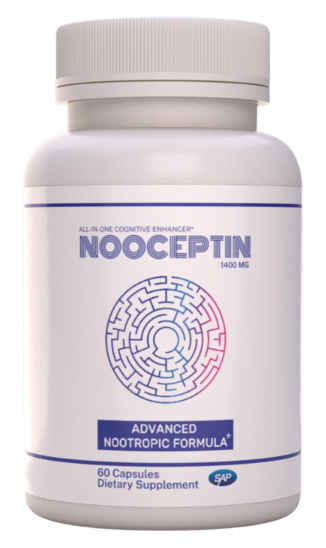
What Are the Cognitive Benefits of Using Alpha Brain?
Alpha Brain focuses on boosting alpha brain waves to boost mental clarity and focus.(9) It provides immediate cognitive benefits, such as:
- Improves mental processing
- Enhances memory recall
- Reduces brain fog
- Increases mental agility
How Do Nooceptin and Alpha Brain Differ in Their Mechanisms of Action?
In comparison to Nooceptin, which offers a broad range of cognitive benefits tailored to various needs, Alpha Brain specifically targets those looking for an edge in mental clarity and function.
The primary differences in mechanisms of action (MOA) between Nooceptin and Alpha Brain are the following key points:
- Acetylcholine Enhancement: Alpha Brain directly targets the enhancement of acetylcholine levels through Alpha GPC and Huperzine A, focusing on improving memory and cognitive speed.
- Stress and Focus: Both supplements might aim to reduce stress and improve focus, but Nooceptin specifically includes L-Theanine and Rhodiola Rosea for these purposes.
- Cognitive Support and Protection: Both may include ingredients like Bacopa Monnieri for cognitive support, but the specific blend and additional components like Lion’s Mane in Nooceptin or Oat straw in Alpha Brain provide nuanced differences in cognitive enhancement and neuroprotection.
What Are the Pros and Cons of Nooceptin and Alpha Brain?
While both supplements promise to boost brain power, Nooceptin’s transparent formula allows for a clear overview of its benefits and drawbacks, unlike Alpha Brain.
Let’s dive in!
What Are the Advantages and Limitations of Nooceptin?
Here’s a summary of the benefits and disadvantages of choosing Nooceptin.
Pros:
- Enhanced cognitive functions, such as improved memory, focus, and learning capacity
- Neuroprotection
- Mood improvement
- Increased brain plasticity
Cons:
- Potential interactions with other medications
- Lack of long-term studies
What Are the Advantages and Limitations of Alpha Brain?
Here’s a summary of the benefits and disadvantages of choosing Alpha Brain.
Pros:
- Improves various cognitive functions, including memory, mental speed, and focus
- Minimal side effects
- Mood improvement
- Variety of blends to choose from
Cons:
- Lack of transparency in ingredient profile
- Expensive compared to some other nootropic supplements
How Do Users Experience Nooceptin and Alpha Brain?
User experiences with these supplements can vary based on individual physiology, expectations, and usage patterns.
Here is a general overview of user experiences for both.
What Are Common User Experiences and Testimonials for Nooceptin?
Many users report positive experiences with Nooceptin. They often mention improved focus and memory retention. This aligns well with the product’s claims.
Users also typically experience a positive impact on their mood, reporting feelings of increased motivation and reduced anxiety, which they attribute to the supplement’s stress-reducing ingredients.
Others highlight an increase in mental clarity. It helps them perform better at work or while studying. Unlike stimulants that can cause jitteriness, users of Nooceptin appreciate the absence of such side effects, experiencing a smooth increase in energy and focus.
Some say they feel a noticeable difference in their cognitive function within a few weeks of use. However, a handful of other testimonials mention that the effects of Nooceptin were not immediate and that consistent use over several weeks was necessary to notice any cognitive benefits.
What Are Common User Experiences and Testimonials for Alpha Brain?
Alpha Brain users frequently talk about enhanced mental sharpness. They also note improvements in their ability to concentrate over long periods.
Many describe feeling more alert without the jitteriness associated with caffeine. Some even share stories of improved verbal fluency, making it easier for them to communicate ideas.
However, a significant number of users report experiencing no noticeable benefits from taking Alpha Brain, pointing to the variability in individual responses to nootropic supplements.
Skeptical users suggest that any cognitive improvements may be due to the placebo effect rather than the supplement’s active ingredients.
How Do Individual Responses to Nooceptin and Alpha Brain Vary?
Experiences with Nooceptin and Alpha Brain can range from significant cognitive enhancement to no perceivable benefits at all. This variability underscores the importance of approaching nootropic use with realistic expectations and a willingness to experiment.
What Are the Side Effects and Safety Profiles of Nooceptin and Alpha Brain?
Understanding the side effects and safety profiles of nootropic supplements like Nooceptin and Alpha Brain is crucial. These factors play a significant role in choosing the right supplement for your cognitive enhancement needs.
Let’s delve into what you need to know.
What Side Effects Have Been Reported with Nooceptin?
Nooceptin, like any supplement, may have side effects. Most users find it well-tolerated. Yet, some report mild issues, such as:
- Headaches
- Nausea
- Dizziness
- Sleep Disturbances
What Side Effects Have Been Reported with Alpha Brain?
Alpha Brain comes with its own set of potential side effects. You must be aware of these before deciding if Alpha Brain is right for you.
Some users report mild side effects, such as:
- Nausea
- Gastrointestinal disturbances
- Anxiety
- Dizziness
- Sleep Disturbances
How Do the Safety Profiles of Nooceptin and Alpha Brain Compare?
With Nooceptin previously discussed as having its own set of considerations, juxtaposing it against Alpha Brain highlights the importance of personal health history and individual response variability when choosing a nootropic.
To minimize risks:
- Start with lower doses.
- Monitor your body’s response carefully.
- Consult healthcare professionals if you’re unsure or experience adverse symptoms.
Remembering that supplements affect everyone differently is key to navigating the world of nootropics safely and effectively.
In What Situations Should You Choose Nooceptin and Alpha Brain and Vice Versa?
Choosing between Nooceptin and Alpha Brain depends on your specific needs, preferences, and safety concerns. Both supplements aim to enhance cognitive function but have different ingredients, which might influence your decision.
When Is Nooceptin the Preferred Choice?
If you prefer a newer formulation that may offer innovative benefits with fewer reported side effects so far, Nooceptin could be your choice.
Additionally, students under heavy academic pressure find Nooceptin invaluable. It supports memory retention and focus, crucial during exam periods. Unlike caffeine-loaded alternatives, it doesn’t lead to jitters or crashes. This makes it perfect for long study sessions.
Professionals in demanding careers also see significant advantages with Nooceptin. In jobs requiring critical thinking and creativity, maintaining mental clarity is key. Nooceptin aids in this aspect by enhancing cognitive functions without side effects that could impede work performance.
People looking for long-term brain health support prefer Nooceptin too. It contains ingredients known to protect against cognitive decline, making it suitable for those prioritizing their future well-being.
For these groups, the benefits of using Nooceptin often outweigh those offered by Alpha Brain, especially considering its favorable safety profile.
Moreover, gamers and athletes seeking an edge find that Nooceptin boosts their reaction times and strategic thinking abilities. These improvements can make a difference on competition days or during intense training sessions.
When Is Alpha Brain the Preferred Choice?
For those prioritizing a supplement with a broad research base, you might lean towards Alpha Brain. It has been around longer and thus has more user testimonials regarding its efficacy and safety profile.
Additionally, professionals with demanding careers find Alpha Brain advantageous. The supplement supports mental clarity, focus, and memory recall—essential traits for high-stakes environments. If your day involves complex problem-solving or strategic planning, incorporating Alpha Brain might give you an edge.
Creative individuals seeking a boost in imagination will appreciate this supplement too. Writers, artists, and designers often experience enhanced creativity while using Alpha Brain. It helps by promoting neurological connections associated with creative thought processes.
How Do Nooceptin and Alpha Brain Compare in Terms of Cost and Value?
Nooceptin and Alpha Brain are both premium nootropics with a higher cost than some other options on the market, however, Nooceptin does not require a monthly subscription fee.
Both of these brain pills and their ability to give you a bang for your buck differs significantly.
What Are the Price Points of Nooceptin and Alpha Brain?
A month’s supply (1 bottle of 90 capsules, with a serving dose of 2 capsules per day) of Alpha Brain is usually around $79.95, and a 15-day supply (1 bottle of 30 capsules, with a serving dose of 2 per day) is $34.95. However, this depends on which blend you choose. The price can go up to $124.95 for premium Onnit blends.
However, the overall price range of Alpha Brain nootropics varies with promotions, bulk purchases, or subscription discounts.
Moreover, Onnit offers a Keep-It™ Money Back Guarantee for first-time purchases of Alpha Brain if you’re not satisfied with the results—this guarantee is redeemable up to three months after purchase but does not apply to multiple bottles or other product categories like foods or apparel.
On the other hand, a month’s supply of Nooceptin (1 bottle of 60 capsules, with a serving dose of 2 capsules per day) is $69, with a bulk purchase of 2 bottles for $138, 3 bottles for $197, and 6 bottles for $414. Additionally, Nooceptin provides a reliable 30-day money-back guarantee to all unsatisfied users.
Overall, Nooceptin is around the same amount for a 1-month supply, but its bulk purchase options allow for savings in the long run.
How Do the Costs of Nooceptin and Alpha Brain Compare in Terms of Value for Money?
For those who prioritize ingredient transparency and comprehensive support over cost alone, Nooceptin is more appealing.
Nooceptin offers a straightforward pricing model. You pay per bottle, with discounts available on larger orders. This simplicity makes it easy to understand how much you’re spending and what you’re getting.
On the other hand, Alpha Brain presents a slightly different approach. It too can be purchased per bottle or in packs, sometimes including promotional bundle deals that add value through additional products or savings on bulk purchases. These bundles can significantly reduce the cost per serving and are particularly appealing if you use Alpha Brain regularly.
Other Alternatives to Alpha Brain
For cost-effective alternatives to Alpha Brain, consider the following nootropics:
- NooCube: Designed to enhance cognitive function, including memory, mental speed, and focus. It’s formulated with a blend of vitamins, amino acids, and other essential building blocks for a healthy, well-functioning brain.
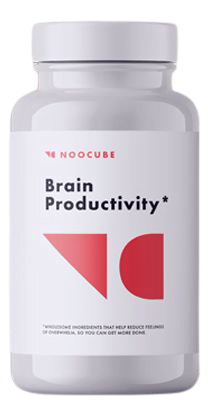
2. Mind Lab Pro: This all-in-one nootropic aims to target all aspects of brain health, offering support for memory, performance, mindset, and structural impact, with a universal nootropic strategy.
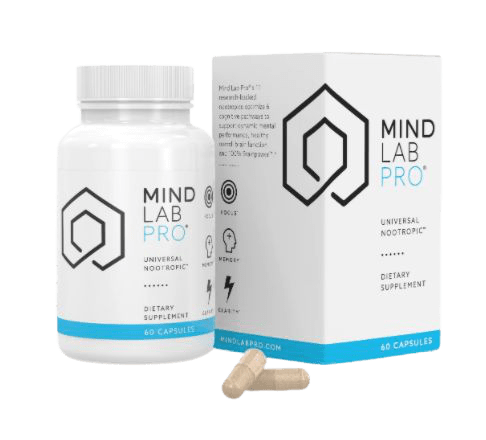
3. Vyvamind: Positioned as a cognitive enhancer that supports attention, concentration, and energy without the typical stimulant side effects, making it a suitable choice for sustained mental performance.
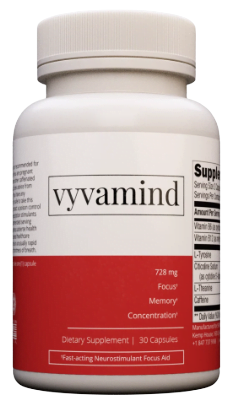
4. Performance Lab Mind: Focused on supporting brain health, recovery, and cognitive functions, it’s designed for long-term brain health with ingredients that promote focus, memory, and mental agility.
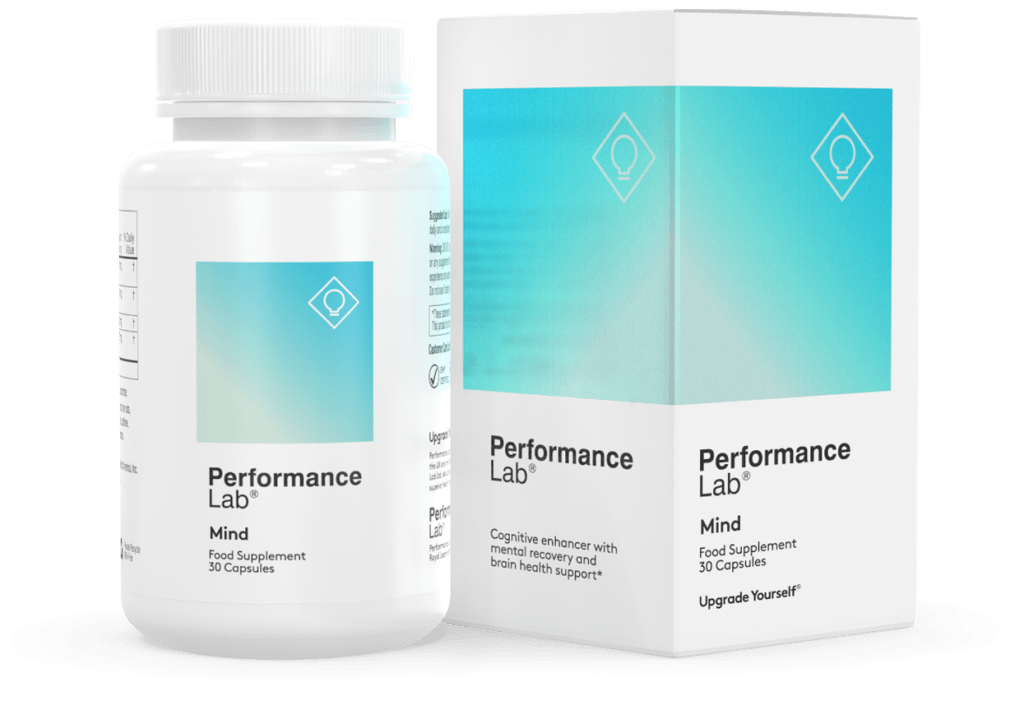
How to Choose Between Nooceptin and Alpha Brain Based on Personal Needs?
Choosing between Nooceptin and Alpha Brain requires a deep dive into your personal preferences and needs.
What Factors Should Be Considered When Choosing Between Nooceptin or Alpha Brain?
When making this important decision:
- List down what you specifically want to improve (memory, focus, etc.)
- Research each ingredient’s benefits and side effects.
- Look for scientific evidence supporting their claims.
- Compare costs while assessing value for money.
How Can You Determine Which Nootropic Is Right for Your Specific Needs?
Firstly, assess your primary goal for using a nootropic supplement.
Are you seeking improved focus, enhanced memory retention, or relief from screen fatigue? If so, Nooceptin is renowned for its ability to provide mental clarity and reduce brain fog, making it an excellent choice if these are your main concerns.
On the other hand, Alpha Brain might be more suited if you’re looking for a boost in creativity and problem-solving abilities due to its blend of natural ingredients aimed at enhancing neural communication.
Consider the formulation of each product closely. The effectiveness of a nootropic stack significantly depends on its combination of ingredients. Nooceptin boasts a mix that includes several well-researched components known for supporting cognitive health without relying heavily on stimulants.
This makes it an ideal option if you prefer a gentle yet effective approach or are sensitive to caffeine.
Alpha Brain’s formulation also consists of high-quality nootropic ingredients but with an emphasis on immediate cognitive enhancement effects which may include increased alertness and quicker thought processing speed—beneficial if your lifestyle demands rapid mental adaptability.
What Are the Long-Term Effects and Benefits of Using Nooceptin and Alpha Brain?
Choosing between Nooceptin and Alpha Brain depends on your needs, and their long-term effects vary.
What Long-Term Cognitive Benefits Can Be Expected from Nooceptin?
Nooceptin stands out for its ability to enhance working memory and mental alertness. These benefits are crucial for anyone looking to improve their cognitive performance over time.
But, how does Nooceptin benefit you in the long run?
Nooceptin provides long-term cognitive benefits by promoting nerve growth factors (NGF) in the brain. This can lead to improved neural connections, enhancing your brain’s overall performance.
Working memory is like the brain’s notepad, essential for learning and problem-solving. By boosting this aspect of cognition, Nooceptin helps you process information more efficiently. Imagine being able to retain and manipulate several pieces of information at once without feeling overwhelmed.
Moreover, mental alertness keeps you sharp and focused throughout the day. This means fewer distractions and more productivity, whether you’re studying or working on a complex project.
Nooceptin focuses on neuroprotection and reducing oxidative stress with long-term use.

What Long-Term Cognitive Benefits Can Be Expected from Alpha Brain?
Alpha Brain has been celebrated for its potential to offer lasting cognitive enhancements.
One key benefit is its support for memory functions, which can significantly impact your daily life and work efficiency. Stronger memory retention means less time spent relearning information or searching through notes—a boon for professionals and students alike.
Alpha Brain aims to improve focus and mental clarity. In an age where distractions are rampant, maintaining concentration becomes invaluable in achieving success in any endeavor.
Alpha Brain enhances neural communication which potentially improves learning abilities with long-term use.
How Can You Optimize the Use of Nooceptin and Alpha Brain for Maximum Benefit?
To fully harness the potential of these supplements:
- Maintain a healthy lifestyle.
- Combine them with regular exercise.
- Ensure adequate sleep every night.
- Consider pairing them with a balanced diet rich in omega-3s and antioxidants.
- Follow recommended dosages carefully but consult healthcare providers before starting any new supplement regimen.
What Are the Best Practices for Using Nooceptin?
Firstly, start with the recommended dosage. It’s tempting to increase doses in hopes of amplified effects
Secondly, consistency is key. For sustained cognitive enhancement, integrate Nooceptin into your daily routine. Skipping days or taking it sporadically undermines its effectiveness.
Another vital practice is monitoring your experience meticulously. Keep a journal detailing changes in focus, memory recall, and overall mental clarity since starting Nooceptin. This personal log aids in fine-tuning dosages and recognizing patterns that contribute to optimal performance.
Lastly, combine Nooceptin with healthy lifestyle choices:
- Adequate sleep
- Regular exercise
- Nutrient-rich diet
What Are the Best Practices for Using Alpha Brain?
Firstly, consistency is also key with Alpha Brain. Unlike medications that offer immediate effects, supplements like Alpha Brain work gradually.
Secondly, like with Nooceptin, monitor your body’s response.
In addition to these practices:
- Combine with healthy habits
- Avoid overreliance
- Stay informed
Which Nootropic Supplement Is Better: Nooceptin or Alpha Brain?
Nooceptin stands out as the better choice between these two popular options for several reasons.
Firstly, consider the ingredient profile. Nooceptin includes L-Theanine, a compound known for its calming effects without sedation. Theanine helps in improving focus and reducing stress levels. This makes Nooceptin ideal for those seeking a balanced approach to cognitive enhancement.
Moreover, users report fewer side effects with Nooceptin compared to Alpha Brain. This could be due to the careful selection of ingredients that work synergistically in Nooceptin.
Furthermore, considering cost-effectiveness, you’ll find that investing in your cognitive health doesn’t have to break the bank with Nooceptin. It offers competitive pricing without compromising on quality or effectiveness.
Armed with comprehensive insights on both nootropics, you’re now in a better position to choose the one that aligns best with your cognitive enhancement goal!
- Jasielski, Patryk et al. “Application of Citicoline in Neurological Disorders: A Systematic Review.” Nutrients vol. 12,10 3113. 12 Oct. 2020, doi:10.3390/nu12103113↩
- Panossian, Alexander, and Georg Wikman. “Effects of Adaptogens on the Central Nervous System and the Molecular Mechanisms Associated with Their Stress-Protective Activity.” Pharmaceuticals (Basel, Switzerland) vol. 3,1 188-224. 19 Jan. 2010, doi:10.3390/ph3010188↩
- Sukumaran, Nimisha Pulikkal et al. “Neuropharmacological and cognitive effects of Bacopa monnieri (L.) Wettst – A review on its mechanistic aspects.” Complementary therapies in medicine vol. 44 (2019): 68-82. doi:10.1016/j.ctim.2019.03.016↩
- Nobre, Anna C et al. “L-theanine, a natural constituent in tea, and its effect on mental state.” Asia Pacific journal of clinical nutrition vol. 17 Suppl 1 (2008): 167-8.↩
- Lai, Puei-Lene et al. “Neurotrophic properties of the Lion’s mane medicinal mushroom, Hericium erinaceus (Higher Basidiomycetes) from Malaysia.” International journal of medicinal mushrooms vol. 15,6 (2013): 539-54. doi:10.1615/intjmedmushr.v15.i6.30↩
- Kiefer, David, and Traci Pantuso. “Panax ginseng.” American family physician vol. 68,8 (2003): 1539-42.↩
- Tan, Meng-Shan et al. “Efficacy and adverse effects of ginkgo biloba for cognitive impairment and dementia: a systematic review and meta-analysis.” Journal of Alzheimer’s disease : JAD vol. 43,2 (2015): 589-603. doi:10.3233/JAD-140837↩
- Dalangin, Rochelin et al. “The Role of Amino Acids in Neurotransmission and Fluorescent Tools for Their Detection.” International journal of molecular sciences vol. 21,17 6197. 27 Aug. 2020, doi:10.3390/ijms21176197↩
- Barringer, Nicholas et al. “Impact of a purported nootropic supplementation on measures of mood, stress, and marksmanship performance in U.S. active duty soldiers.” Journal of the International Society of Sports Nutrition vol. 15,1 26. 31 May. 2018, doi:10.1186/s12970-018-0229-8↩
